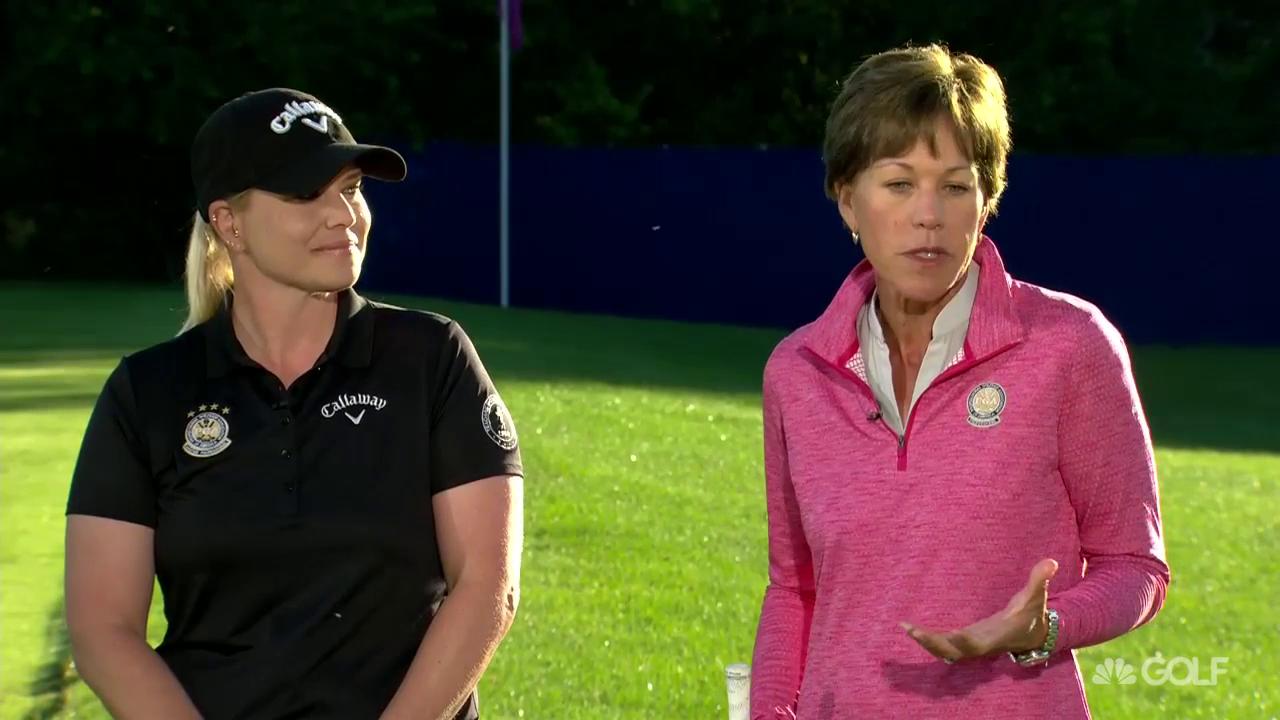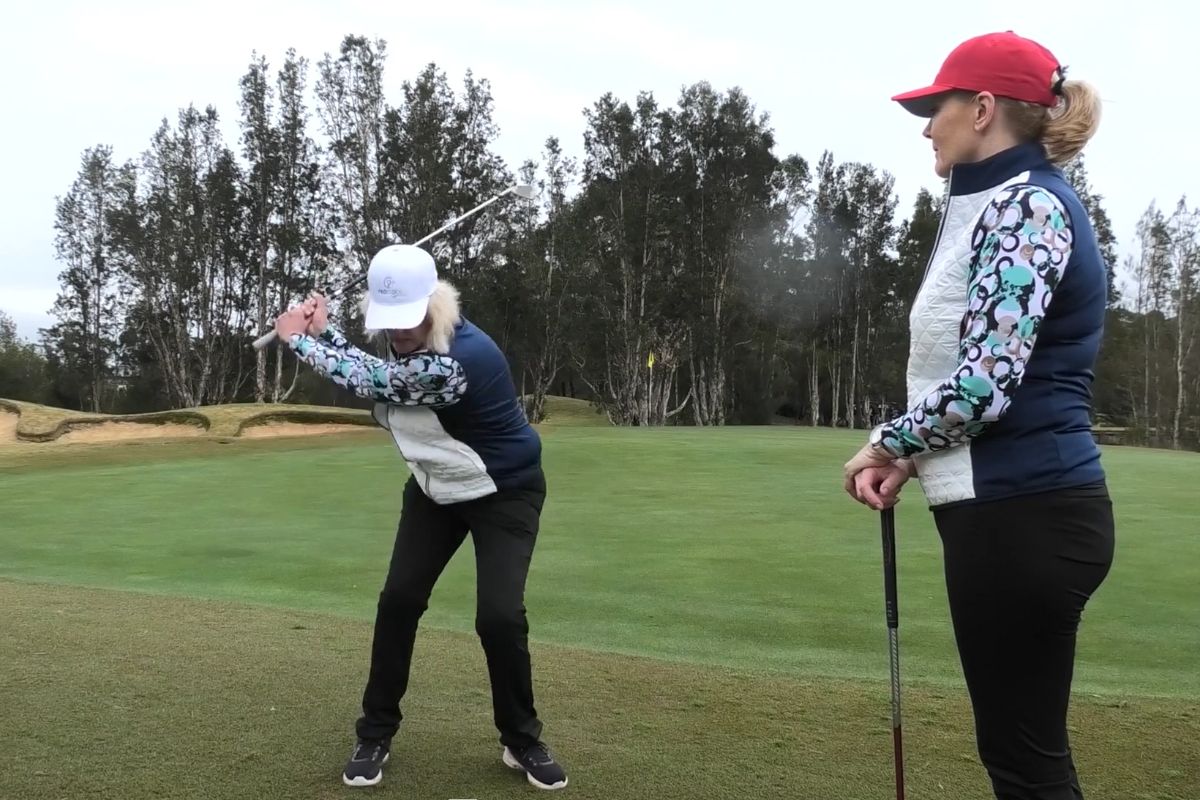I’ve walked the halls of my country club for over 35 years. As a child, I used the locker room to store my things as I spent the day at the pool. As a teenager, I ate with my friends on the outdoor terrace. As an adult, I can gaze at the majestic golf course from the formally decorated dining room. Our club has changed a lot through the years. We have been through tough times. We have enjoyed good times, too. We have remodeled, had staff changes, and even got lucky enough to install a slide at the pool last year. (And no, I’ve not used it. No plan to either. There’s no need to do anything which would endanger my golf game.)
Downstairs, there are rows of pictures showing swim teams of yesteryear, vintage pictures of women donning white gloves at a luncheon and even a few pieces of artwork that tend to brighten the place up a bit. It’s amazing to see the changes the Club has been through and how time marches on. Change is inevitable.
However, one place in our Club always catches my attention. You see, there is a hall adjoining the Pro Shop where 48 framed pictures are on display. These pictures are of all the Club Presidents dating back to 1955. Of course, it is interesting to see the fashions evolve. The black 1950s eyeglasses turned into 1970s disco collars, which morphed into 1980s plaid. You can imagine the 1960s slicked back hairstyles that scream a young Paul Newman. As someone who loves fashion, it’s like witnessing a time machine. But, even through all that changing fashion, and the decades which embody them, one attribute connects them all.
The Hall of Presidents are all white men.
Let’s dive a little deeper into the club leadership. Our Board currently consists of 9 members. One of those members is a woman and she holds the position of Secretary. (One woman on a nine-person board?) Our greens (golf) committee is comprised of 5 members. Zero women are on that committee. (Wait, what?!) Granted, there have been a smattering of women throughout the years who have served on these entities. But, it hasn’t been consistent and it sure has not been in equal number.
A 2015 journal article entitled, “Appointing women to boards: Is there a cultural bias?” shed some light on the topic of female representation on corporate boards of organizations/companies. The authors analyzed 32 countries for women’s representation on corporate boards and found, “countries which have the greatest tolerance for inequalities in the distribution of power and those that tend to value the role of men generally exhibit lower representations of women on boards.”
What’s interesting about this study is how authors based their research on the Hofstede Model. This is a model which shows the effects of society’s culture on the values of that culture and how those values relate to overall cultural behavior. In other words, what the cultural values are impact how people behave. Some of the values in the model are dimensions such as how feminine or masculine a culture is or if the culture values group activity or individualism. The authors found that in countries where there were no women or few women on a corporate board, the country tended to value masculinity and tended to have a greater tolerance for inequality. The problem of underrepresentation runs deep within a culture.
A few countries which exhibited below average (average is 8% in this study) female representation on corporate boards were Australia, China, Italy, Japan (2.08%), Switzerland, and the United Kingdom. Countries that had higher than the 8% average female representation were Sweden (23%), South Africa, and France. Just for you who may be curious, the United States had a result of 8.04%.
It may be of interest to note 189 (67%) boards in Australia had no women on corporate boards. Of the boards in the United States, 1977 (46.6%) had no women on the board. Canada had no women on 51.6% (164) of the boards analyzed. The authors also looked at numbers and percentages of boards with at least one woman on the corporate board. The results were slightly better, but not much.
These are global companies. What does all this mean for my local club where there is only one woman on the nine-person board?
Aside from the simple fact that we have a significant portion of our club underrepresented, it allows for a sense of tradition which is based on repetition. There are some traditions in golf I hope never change. We are seeing breaks in tradition with the recent pandemic. However, when traditions are based on simple habits or “the way it has always been done” it can lead to progression being stifled. It perpetuates and solidifies cultures that end up not having any room for needed change. The nine-person board needs an equal number of women on it because of the different perspectives which can be brought to the table. The five-person golf committee needs equal representation because not all players on the course are male. Are women encouraged to seek a position on either of these entities? From my personal experience, I have offered to be on the golf committee and I’m still waiting for that opportunity. (In fact, my request for meeting minutes wasn’t granted.) The culture just isn’t conducive for women to feel encouraged to serve.

Don’t get me wrong. I appreciate our board and golf committee. They are giving precious time and energy, voluntarily, to the club. However, it’s time. It is time for clubs to recruit, ask and encourage women to be on boards and golf committees. We have already seen some of the positive outcomes when women are in leadership positions within the golf industry. Roberta Bowman (Chief Brand and Communications Officer for the LPGA) and Suzy Whaley (President of the PGA) are recent examples.
The game of golf, namely the LPGA and a few other organizations, have been on a mission to encourage women and girls to take up the game. So, how can we encourage women, in the same spirit, to be involved at this level, as well?
Studies show having women at the helm or on a corporate board increases the value of that company either in financial value, social value, or both. Therefore, for the sake of the vitality of your local course, I hope you will consider being on your local club board, golf committee or any entity you feel has value. If serving in this way isn’t for you, maybe you know a woman who would be perfect for the job. Encourage her!
For now, I will continue to walk down that hall in my own club and be appreciative of those who have led. I will continue to walk past the decades of fashion nightmares. Hopefully, someday when I get to the end of the Hall of Presidents, I will see a break in tradition.
Reference
Carrasco, A., Francoeur, C., Labelle, R., Laffarga, J. and Ruiz-Barbadillo, E. (2015) Appointing women to boards: Is there a cultural bias? Journal of Business Ethics, 129, 429-444.
Cover photo: Dr. Alison Curdt and President of the PGA of America, Suzy Whaley







